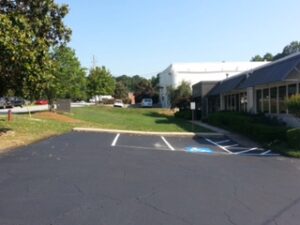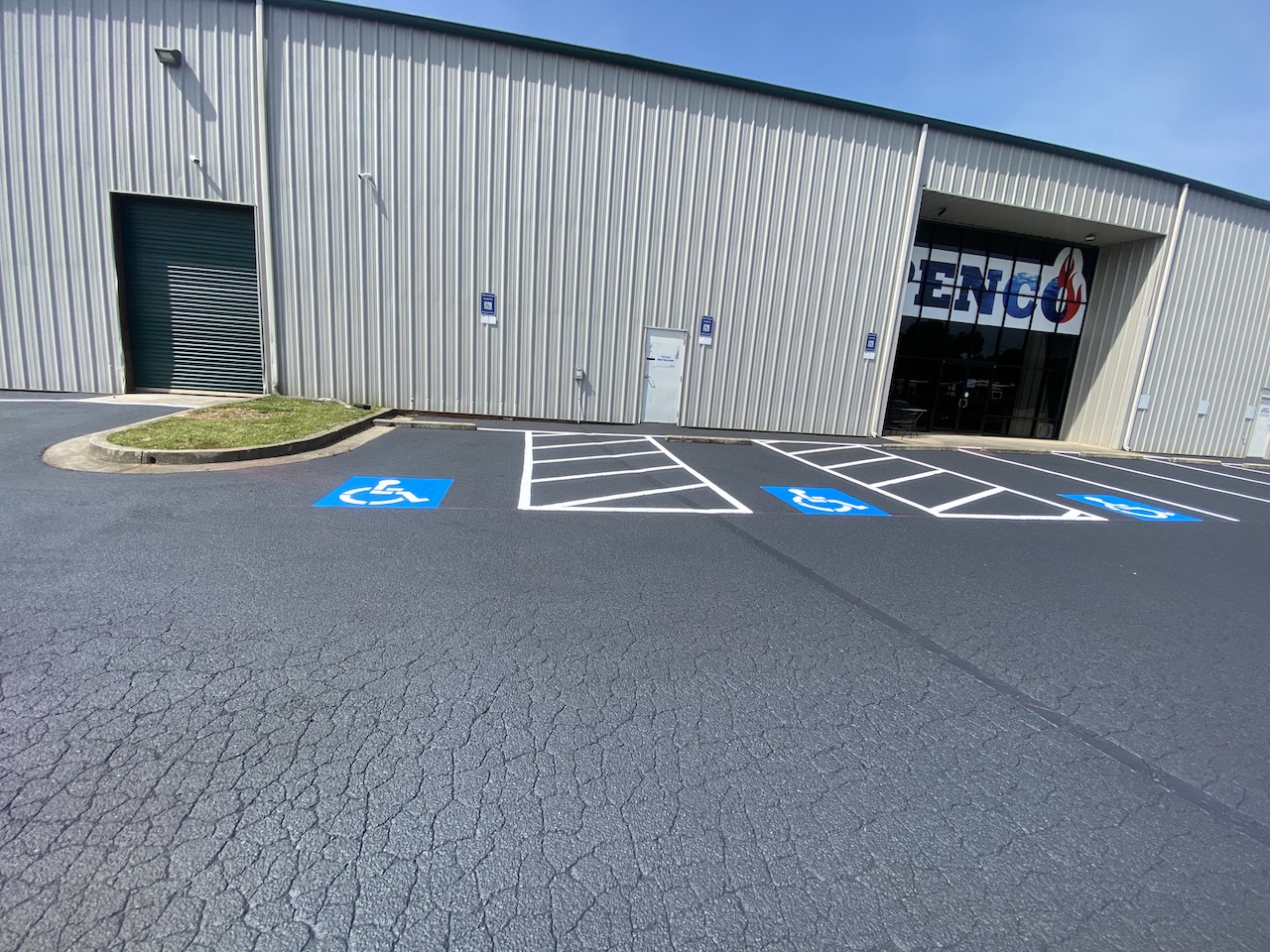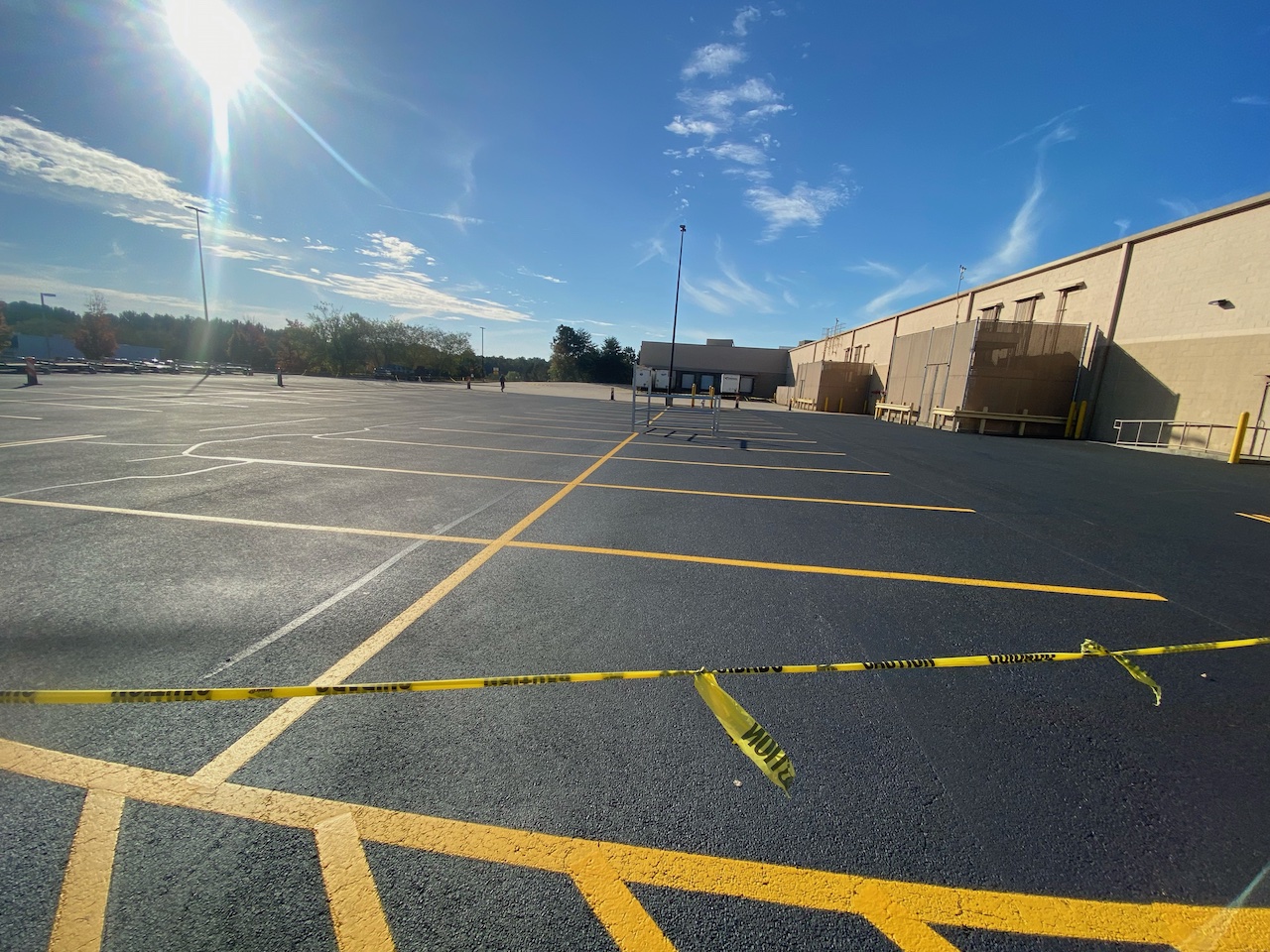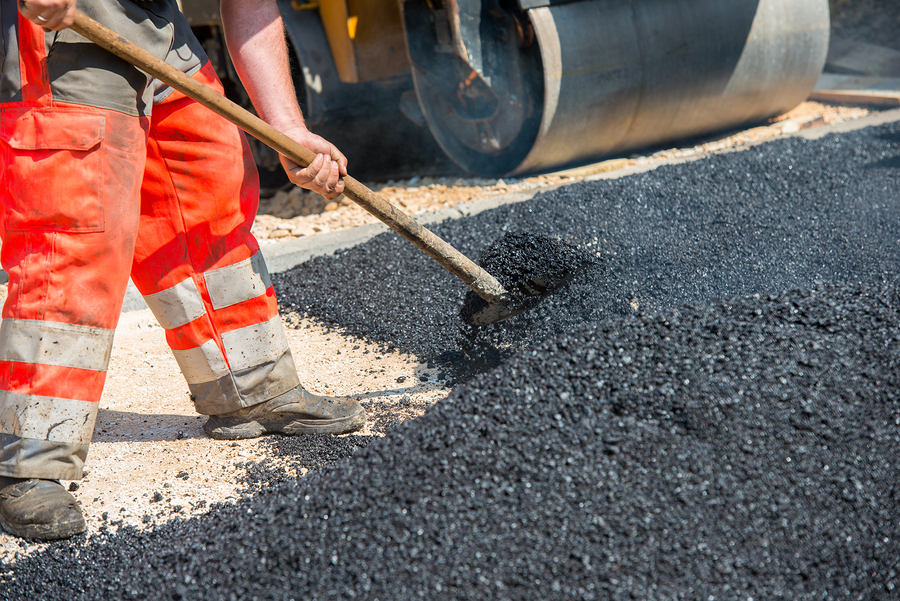
What Factors Do Contractors Consider for Springtime Sealcoating?
Asphalt sealcoating goes on as a liquid that must evaporate the water contained in the mix for the sealant to cure. Most Marietta sealcoating contractors prepare a mix that is roughly 70% water by volume. Anything that slows the process of evaporation can have a detrimental effect on the curing time. Therefore, when sealcoating Marietta pavements, contractors must consider the relative humidity level, the wind speed, the availability of sunlight, the likelihood of rain, and the temperature of both the pavement and the air.
How Does the Relatively Humidity Level Impact Sealcoating?
Relative humidity is a way to express the amount of water vapor in the air. It is stated as a percentage of the amount of water vapor that would be needed for the air to be totally saturated at the current temperature. Therefore, air that is fully saturated has a relative humidity of 100%, and fully saturated air cannot absorb any more water. In other words, the water molecules in the asphalt sealcoating cannot evaporate properly because they have nowhere to go. Asphalt sealcoating contractors typically will not attempt to apply a sealant if the relative humidity is more than approximately 90% or so. As a general rule, the lower the relative humidity, the faster the sealant can dry and cure.
How Does the Wind Impact Sealcoat Applications?
As the air above the sealed pavement absorbs more and more water, the molecules remaining in the sealant have more difficulty escaping. A steady, light breeze helps move the waterlogged air away from the pavement so that fresh, drier air can replace it. When sealcoating Marietta pavements, most contractors want to have a minimum wind speed of between 3 mph and 5 mph, and a slightly stronger wind is preferable. However, very high winds can cause problems for a contractor. If the wind is too strong, it can blow the sealant as it leaves the sprayer, making it more difficult to achieve an even coat, and it can also increase the risk of the sealant being blown onto nearby objects. Normally, experienced paving maintenance contractors can compensate for strong winds by using various techniques, but there can occasionally be days on which the winds are just too excessive.
How Does the Sun Impact Asphalt Sealcoating?
Sunlight helps excite the molecules in the sealant so that they bump into each other at faster speeds, and this process creates heat. However, sunlight also renews heat. On an overcast day, the creation and regeneration of heat will be reduced, thereby increasing the time needed for the sealant to dry and cure. Most Marietta asphalt maintenance contractors prefer that sealants have three or four hours of direct sunlight.
What Is the Importance of Rain When Sealcoating Marietta Pavements?
Simply stated, if rain falls on fresh sealant, the entire job can be ruined. A heavy rain could wash the newly applied sealant completely away if it is still wet. If the sealant is dry, but it has not yet cured, raindrops can leave marks that affect the surface appearance of the pavement. Contractors want to make sure that rain is not expected during the application and for the next 24 hours.
How Do Temperatures Affect Asphalt Sealcoating Contractors?
The temperature of the pavement is also known as the ground or surface temperature, and the temperature of the air is also called the ambient temperature. Normally, both the ambient and surface temperatures are within a few degrees of each other, but that is not always the case, especially in the evening and early morning. Both temperatures need to be a minimum of 50 degrees Fahrenheit and increasing when contractors apply asphalt sealants, but the minimum temperature may need to be higher if the day is overcast, humid, or exceptionally still. Since higher temperatures expedite the curing process, so most contractors prefer temperatures above 70 degrees.
Trust the Experts at MH Greeson
MH Greeson offer an extensive list of services, including asphalt sealcoating, bollard installation, asphalt crack repair, ADA compliance, traffic signage, asphalt paving, parking lot striping, car stops, and asphalt repair. We are known for providing work of exceptional quality at reasonable prices, and we have an exemplary reputation for integrity, customer service, and professionalism. If you would like to request a free, no-strings quote, submit our online form, or you can call 770-335-2983.




